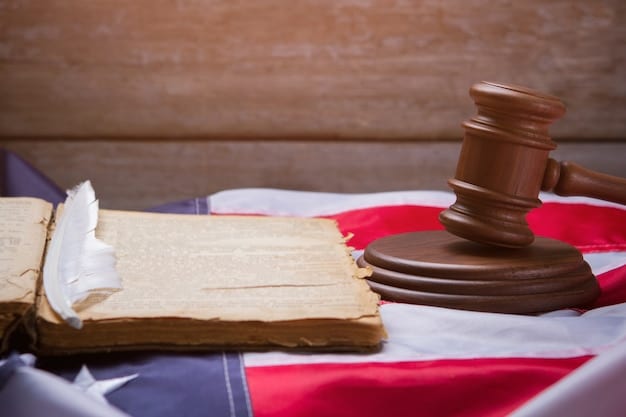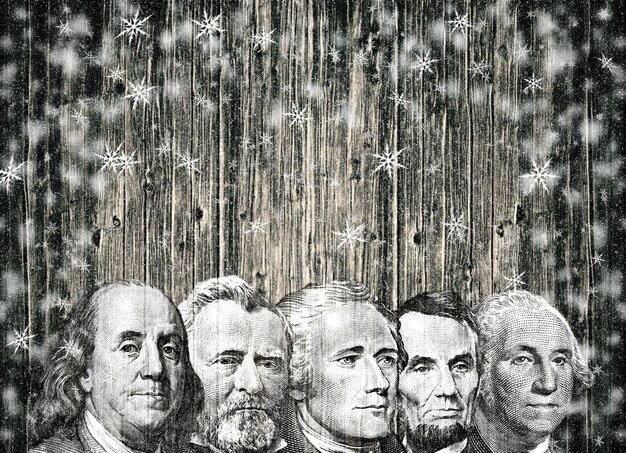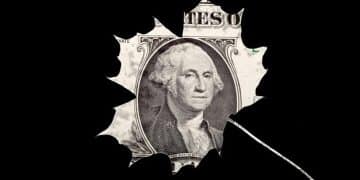Presidential Pardons: Unveiling Political Cover-Ups?

Presidential pardons, a constitutional power meant for justice and mercy, are increasingly scrutinized for their potential misuse in shielding individuals involved in political crimes, blurring the lines between legal prerogative and alleged obstruction of justice.
The power of a presidential pardon, enshrined in the U.S. Constitution, is intended as a check on the judicial branch, a tool for offering mercy and correcting injustices. However, the question of whether presidential pardons are being used to cover up political crimes has become increasingly relevant in today’s political landscape, sparking intense debate and raising concerns about the integrity of the justice system.
The Constitutional Basis of Presidential Pardons
The U.S. Constitution grants the president broad authority to pardon individuals convicted of federal crimes. This power, outlined in Article II, Section 2, Clause 1, is not subject to congressional oversight, making it a significant executive privilege.
Historical Context of Pardons
Historically, presidential pardons have been used for various purposes, from granting amnesty to large groups of people after conflicts like the Civil War to correcting perceived injustices in individual cases. Presidents like Abraham Lincoln and Franklin D. Roosevelt used pardons extensively, often for restorative justice.
The Scope of the Pardon Power
The president’s pardon power extends to almost all federal offenses, except in cases of impeachment. This broad scope allows the president considerable discretion in deciding whom to pardon and why. It’s this breadth that often fuels controversy, particularly when pardons are issued in politically charged situations.
- The president can issue pardons before or after a conviction.
- Pardons restore certain civil rights, like the right to vote and hold office.
- This power is a check on the judicial branch, allowing the executive to correct perceived errors.
Understanding the constitutional basis of presidential pardons is crucial for evaluating when and how this power is exercised. The historical context provides important insights into the evolving uses and controversies surrounding this executive privilege.
Pardons and Political Influence: A Troubling Trend?
While the power to pardon is intended for justice and mercy, concerns arise when pardons appear to be influenced by political considerations. Such instances can erode public trust in the integrity of the justice system.

High-Profile Cases and Controversies
Several high-profile cases have raised questions about the motivations behind presidential pardons. Pardons issued to political allies, campaign donors, or individuals connected to the president’s administration have drawn criticism and accusations of favoritism.
Ethical and Legal Considerations
The ethical implications of pardoning individuals with close ties to the president are significant. Legal scholars debate whether such pardons constitute an abuse of power or obstruction of justice, particularly if they appear to protect individuals from potential prosecution for crimes that could implicate the president.
The intersection of politics and pardons raises serious questions about fairness and transparency in the justice system. When pardons appear to be driven by political expediency, it undermines the principle of equal justice under law.
The Potential for Obstruction of Justice
One of the most concerning aspects of presidential pardons is the potential for them to be used to obstruct justice. By pardoning individuals who might otherwise testify against the president or reveal damaging information, a pardon could effectively shield the president from accountability.
The Fifth Amendment and Self-Incrimination
The Fifth Amendment protects individuals from being compelled to incriminate themselves. However, a presidential pardon removes the risk of self-incrimination, potentially compelling a witness to testify without fear of prosecution.
Implications for Investigations
The use of pardons to influence the outcome of investigations raises significant legal and ethical questions. Legal experts debate whether such actions constitute obstruction of justice, a crime that can carry severe penalties.
- A pardon can effectively silence a witness, preventing them from providing crucial testimony.
- It can create a perception that the president is above the law.
- The potential for obstruction of justice undermines the principles of accountability and transparency.
The potential use of pardons to obstruct justice poses a fundamental threat to the rule of law. Ensuring accountability and transparency in the pardon process is essential to safeguarding the integrity of the justice system.
Historical Precedents: Pardons and Political Crimes
Throughout U.S. history, there have been instances where presidential pardons have been intertwined with political crimes, sparking public outrage and legal scrutiny. Examining these historical precedents provides valuable context for understanding the current debates.

The Nixon Pardon
One of the most controversial pardons in U.S. history was President Gerald Ford’s pardon of Richard Nixon in 1974, following the Watergate scandal. This decision remains a subject of intense debate, with some arguing it was necessary to heal the nation and others viewing it as a betrayal of justice.
Other Notable Cases
Several other presidential pardons have also raised eyebrows and sparked controversy. These cases often involve individuals with close ties to the president or those accused of crimes with political implications.
Studying these historical precedents offers crucial insights into the complex relationship between presidential pardons, political crimes, and public perception. These cases highlight the ongoing tension between the president’s power to pardon and the need for accountability in the justice system.
Safeguarding Justice: Reforms and Oversight
Given the potential for abuse, there is a growing call for reforms and increased oversight of the presidential pardon process. Several proposals have been put forward to promote transparency and accountability.
Potential Reforms
Some possible reforms include requiring greater transparency in the pardon application process, establishing an independent review board to evaluate pardon requests, and limiting the president’s ability to issue pardons in cases involving close associates or political allies.
The need for reforms and oversight in the presidential pardon process is evident. Measures to promote transparency and accountability can help ensure that this power is used justly and impartially, without undue political influence.
Public Opinion and the Legitimacy of Pardons
Public perception plays a crucial role in determining the legitimacy of presidential pardons. When the public believes that pardons are being used for political purposes, it can erode trust in the government and the justice system.
The Role of Transparency
Transparency is essential for maintaining public confidence in the pardon process. When the reasons behind a pardon are clearly articulated and based on legitimate considerations, such as rehabilitation or correcting an injustice, the public is more likely to accept the decision.
Media Influence and Public Discourse
The media also plays a significant role in shaping public opinion about presidential pardons. Objective reporting and informed analysis can help the public understand the complexities of the issue and make informed judgments.
- Ensuring transparency in the pardon process is crucial.
- The media has a key role in shaping public perception.
- Public discourse and engagement are essential for holding the government accountable.
Public opinion is a powerful force in shaping the legitimacy of presidential pardons. Transparency, informed media coverage, and public engagement are essential for ensuring that this power is used responsibly and in the best interests of justice.
| Key Point | Brief Description |
|---|---|
| 📜 Constitutional Basis | President granted broad pardon power. |
| ⚖️ Political Influence | Concerns arise with politically motivated pardons. |
| 🕵️ Obstruction of Justice | Pardons may prevent testimony, shielding presidents. |
| 📰 Public Opinion | Transparency needed for legitimate pardons. |
Frequently Asked Questions
▼
A presidential pardon is an executive action that forgives a person for a federal crime, restoring certain civil rights. It’s granted by the U.S. President and recognized under the Constitution.
▼
Presidents can pardon individuals for federal crimes, except in cases of impeachment. State crimes are beyond the reach of the U.S. President’s pardon power.
▼
Pardons become controversial when they are perceived as politically motivated or as obstructing justice. This erodes public trust in the impartiality of the justice system.
▼
The pardon power is largely unchecked, except for impeachment cases. Public and media scrutiny serve as informal checks by influencing public perception and accountability.
▼
Reforms may include greater transparency in the application process, an independent review board, and limiting pardons for associates to ensure fairness and reduce political influence.
Conclusion
The question of whether presidential pardons are being used to cover up political crimes is a serious one, demanding careful consideration and ongoing scrutiny. While the pardon power is a legitimate tool for offering mercy and correcting injustices, its potential for abuse necessitates reforms and oversight to safeguard the integrity of the justice system and maintain public trust in government.





